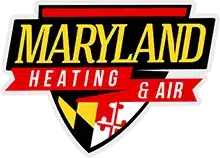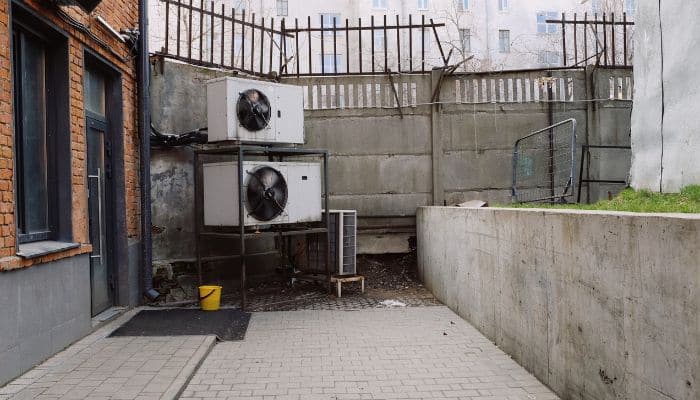Leasing commercial HVAC equipment offers lower upfront costs, flexible upgrades, and often includes maintenance—but may cost more long term and doesn’t provide ownership. Buying, on the other hand, requires a larger initial investment but can save money over time, gives full control, and lets you customize the system. The best choice depends on your business’s budget, long-term plans, and how hands-on you want to be with HVAC management.
Leasing Commercial HVAC Equipment: Benefits and Drawbacks
Leasing commercial HVAC equipment means you pay for the use of the system over a set period, without owning it outright. This option is ideal for businesses that need flexibility or want to avoid the upfront costs of purchasing equipment.
Benefits of Leasing
1. Lower Upfront Costs
Leasing a commercial HVAC system typically requires a lower initial investment, which is especially beneficial for small businesses or those looking to preserve cash flow. Instead of paying the full price upfront, you can spread the cost over time with manageable monthly payments.
2. Access to Newer Technology
Leasing allows businesses to stay on top of the latest technology. Since leases typically last 3 to 5 years, businesses can upgrade to a more energy-efficient or advanced system as newer models become available. This is particularly useful in industries where energy efficiency and air quality are top priorities.
3. Reduced Maintenance Costs
Many leases include maintenance and servicing agreements, which means that you won’t have to bear the cost of repairs or regular upkeep. This makes leasing a hassle-free option for businesses that don’t have the resources to maintain their own HVAC systems.
Drawbacks of Leasing
1. Long-Term Costs
While leasing lowers upfront expenses, the total cost over time may be higher than buying. If you keep the equipment for a long period, the cost of leasing can exceed the purchase price, making it less cost-effective in the long run.
2. No Ownership
At the end of the lease term, you don’t own the equipment. This means you won’t have any residual value once the lease expires, which can be a disadvantage if the system still has plenty of life left.
3. Limited Customization
Some lease agreements may limit your ability to modify or upgrade the system. If you need specific features or want to make customizations to meet your business’s needs, leasing might not provide the flexibility you require.
Buying Commercial HVAC Equipment: Benefits and Drawbacks
Buying commercial HVAC equipment means you’ll own the system outright once it’s paid for. This is often the preferred choice for businesses with the resources to make a larger upfront investment.
Benefits of Buying
1. Full Ownership
Once you’ve paid for the system, it’s yours. There are no monthly payments to worry about, and you can keep the HVAC system for as long as you need it. This means you can maximize the value of the equipment over its entire lifespan.
2. No Ongoing Payments
By purchasing the system outright, you eliminate any ongoing payments that come with leasing. This can be a more economical choice in the long run, especially if you plan on keeping the equipment for many years.
3. Customizable and Adaptable
Owning your HVAC system gives you the freedom to make changes or upgrades as needed. If you want to adjust the system to better suit your building’s layout or needs, you have the flexibility to do so without restrictions.
Drawbacks of Buying
1. High Upfront Costs
The most significant disadvantage of buying a commercial HVAC system is the large initial investment. For many businesses, the upfront cost can be a financial burden, particularly if you need to purchase multiple systems or invest in high-end equipment.
2. Ongoing Maintenance and Repairs
While ownership offers long-term savings, it also means you’ll be responsible for the system’s maintenance and repairs. Over time, these costs can add up, especially if the system experiences significant wear and tear.
3. Technology Obsolescence
Unlike leasing, where you can upgrade to newer equipment every few years, owning a system means you’ll have to keep your HVAC equipment until it no longer meets your needs. As newer, more energy-efficient models become available, your system might begin to feel outdated.
Which Commercial HVAC Equipment Option is Right for Your Business?
Ultimately, the choice between leasing and buying commercial HVAC equipment depends on your business’s specific needs and financial situation. If you’re looking for flexibility, lower initial costs, and reduced maintenance responsibilities, leasing may be the better option. On the other hand, if you prefer long-term savings, full control over your equipment, and the ability to customize, buying could be the right choice for you.
To help guide your decision, consider consulting commercial HVAC services near you in Essex or a local HVAC solutions provider. A trusted commercial HVAC contractor can assess your specific needs and provide tailored advice on the best option for your business.
Conclusion
Whether you choose to lease or buy, it’s important to partner with reputable commercial HVAC companies that understand your needs and can provide top-quality service. By making the right decision, you can ensure that your business enjoys reliable and efficient heating and cooling for years to come.
If you’re in Essex and need assistance with choosing or installing your HVAC system, be sure to reach out to local professionals who offer customized commercial HVAC solutions.


 855-410-TECH(8324)
855-410-TECH(8324) APPLY FOR FINANCING
APPLY FOR FINANCING